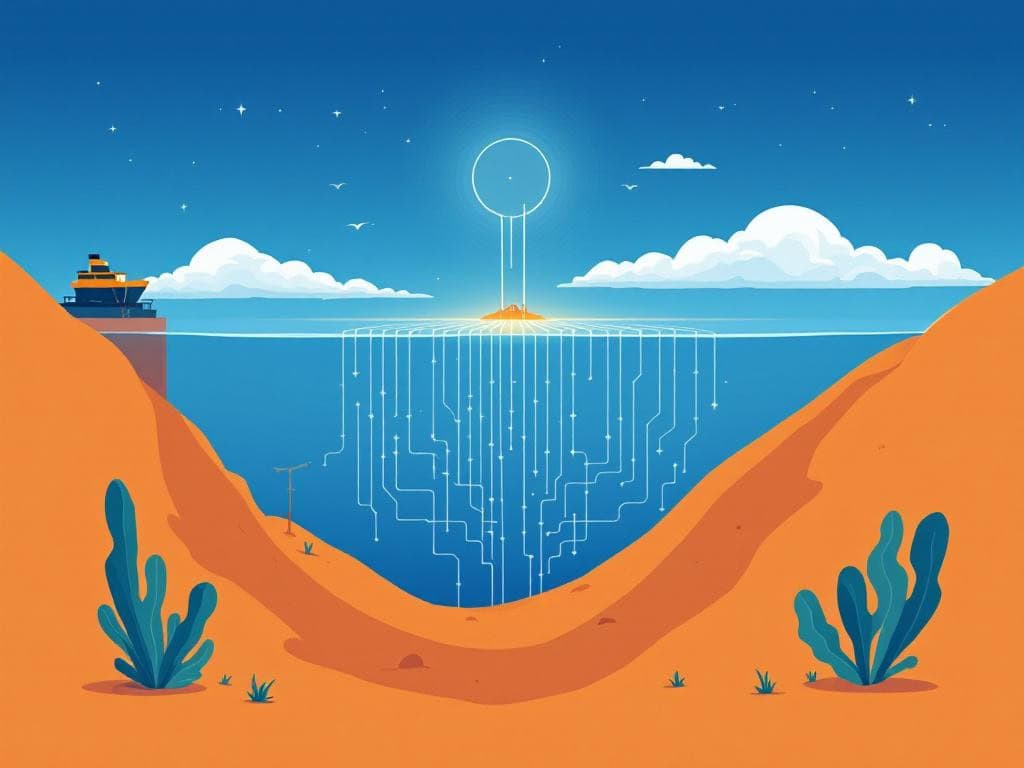Meta Completes 2Africa Undersea Cable: Enhancing Global Connectivity and Economic Growth

Meta Completes 'Core' 2Africa Undersea Cable Project, Connecting Three Continents
Meta announced the completion of the core 2Africa undersea cable project, an ambitious initiative linking Africa, Europe, and Asia with 45,000 kilometers of submarine cabling designed to enhance internet connectivity across regions with limited access.
The project, first announced in 2021, marks a significant milestone in global telecommunications infrastructure, creating the first cable system to connect East and West Africa continuously while extending to Europe, the Middle East, and South Asia. According to Meta, the completed portions now reach 33 countries and will potentially enable connectivity for 3 billion people—more than 30% of the world's population.
Engineering challenges and regional complexities
The 2Africa project required significant technological innovations to overcome natural obstacles in the marine environment. Meta reports that engineers increased cable burial depth by 50% compared to previous systems to avoid seabed hazards "such as seamounts at hot brine pools," thereby improving network resilience and availability.
However, the announcement carefully specifies that the "core" of the project is complete, indirectly acknowledging that some sections remain unfinished. Reports from Bloomberg indicate that construction teams faced substantial challenges, particularly in the Red Sea region, where they reportedly endured missile attacks allegedly carried out by the Iranian-backed Houthi armed group.
These security concerns have caused significant delays and required route adjustments for both Meta and Google, which has experienced similar issues with its own undersea cable initiatives. While Meta has not officially confirmed these security challenges, the wording of its announcement suggests modifications to the original plan.
"This scale is unprecedented and we are proud to have partnered with stakeholders across the ecosystem to deliver new levels of connectivity at such scale," Meta stated in its announcement, focusing on the successful portions while avoiding direct mention of regional security complications.
Economic impact and technological capabilities
Despite the challenges, the 2Africa cable system promises substantial economic benefits for the regions it serves. Meta expects the project to contribute up to $36.9 billion to Africa's GDP within the first two to three years of operation.
The technical specifications underscore the transformative potential of this infrastructure. The West segment alone, which stretches from England to South Africa with landings in countries including Senegal, Ghana, Nigeria, and Angola, supports 21 terabits per second (Tbps) per fiber pair, with eight fiber pairs on the trunk. This configuration delivers a remarkable total trunk capacity of up to 180 Tbps.
"This massive capacity ensures a near-limitless supply of international internet bandwidth, allowing internet service providers (ISPs) and mobile network operators (MNOs) to secure capacity at much lower wholesale prices," Meta explained.
This massive infrastructure upgrade represents a significant advancement in global cellular network infrastructure development that will support next-generation connectivity across multiple continents.
Strategic importance for Meta's global expansion
The completion of the 2Africa cable project aligns with Meta's broader strategic initiatives to expand its technological reach globally. As the company continues to develop and deploy artificial intelligence tools across various markets, enhanced connectivity infrastructure becomes increasingly critical.
By improving internet accessibility in regions previously hampered by limited bandwidth, Meta positions itself to capture emerging markets and maximize its global revenue potential. The 2Africa project represents a significant investment in digital infrastructure that could help bridge the global digital divide while supporting the company's long-term growth objectives.
The enhanced connectivity provided by 2Africa will be instrumental in supporting 5G and IoT technologies crucial for business growth in previously underserved regions, creating new opportunities for technological advancement and economic development.
How you can use this information:
- Businesses operating in Africa can prepare for improved connectivity that may transform digital operations and customer engagement
- Technology developers should consider targeting newly connected regions with appropriate applications designed for emerging digital economies
- Investors might watch for economic growth indicators in countries along the cable route as digital transformation accelerates
For regions benefiting from this new infrastructure, the impact extends beyond mere internet access—it potentially transforms educational opportunities, healthcare delivery systems, and entrepreneurial possibilities, creating new pathways for economic development and digital inclusion.
Comparative network performance implications
The substantial bandwidth capacity of the 2Africa cable system will dramatically improve internet performance in connected regions. With its 180 Tbps trunk capacity, the system provides the backbone infrastructure necessary to support the significant advantages of 5G over 4G networks in terms of speed, latency, and connection density.
This advancement will be particularly transformative for regions that have historically struggled with reliable internet access. According to the International Telecommunication Union, increased broadband penetration directly correlates with GDP growth in developing economies, with each 10% increase in broadband penetration potentially yielding a 1.38% increase in GDP growth.

